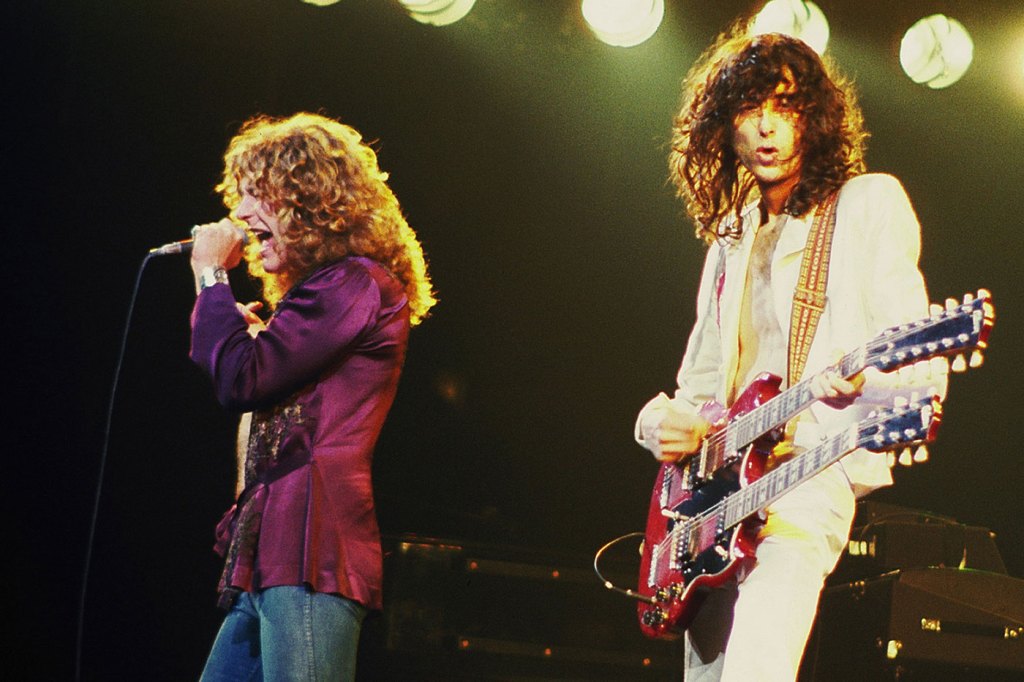Stairway to court for Led Zeppelin

The three living members of the British rock band Led Zeppelin have spent the last few days not performing on stage, but listening to legal proceedings in a Los Angeles court room.
That’s because front man Robert Plant and guitarist Jimmy Page are accused of stealing the instrumental composition of the 1971 hit “Stairway to Heaven” from Randy Wolfe, also know as Randy California, a guitarist for the band Spirit, who wrote a similar-sounding composition for the song “Taurus.”
Wolfe died in 1997, and representatives of his trust brought the case forward. All three members of Led Zeppelin have testified in the case, which continues on Tuesday.
We asked College of Arts, Media and Design teaching professor David Herlihy, an entertainment attorney, to share his thoughts on the case and what impact a guilty verdict could have in the music industry.

College of Arts, Media and Design teaching professor David Herlihy. Courtesy photo
How does one successfully prove plagiarism or copyright infringement in the music industry? What hurdles have to be cleared?
Copyright infringement cases involving popular music typically focus on the substantial similarity of vocal melody and lyrics. Imitating chord progressions, bass lines, guitar figures, drum patterns, genres, and sounds isn’t usually considered copyright infringement.
A verdict of infringement in the Zeppelin case would continue the troubling chilling effect that is currently rippling through the music industry.”
—David Herlihy
In order to establish a case for copyright infringement, a plaintiff must show that the defendant had access to the work, the defendant copied original elements of the work, and the resulting work is substantially similar to the original work.
To start, California’s estate must prove that Page and Plant had access to “Taurus.” Since Led Zeppelin and Spirit toured together in the 1960s when Spirit was performing “Taurus,” it is likely that California’s estate will be able to establish that Plant and Page had access to his song.
Next, California’s estate must prove that Page and Plant copied original elements of “Taurus.” The intro to “Taurus” is an instrumental, featuring a descending bass line against an A minor chord, with no lyrics and no vocal melody. This is a fairly commonplace pattern that has been employed by composers for centuries. Although the intro to “Stairway to Heaven” and “Taurus” do sound very similar, the A minor arpeggio is not original to California. Even if Zeppelin did copy “Taurus,” this should not constitute copyright infringement.
Finally, California’s estate must prove that “Stairway to Heaven” is substantially similar to “Taurus.” The A minor arpeggio in “Taurus” lasts for 10 seconds and it appears in “Stairway to Heaven” for two minutes. “Stairway” also features vocal melodies and lyrics throughout much of its eight minutes of running time. Even if Page and Plant did copy “Taurus,” the passage in question is short, and not original to California. “Stairway to Heaven” is not substantially similar to “Taurus.”
Are there any recent court decisions that could be used against Led Zeppelin?
Infringement is in the ear of the beholder, and it is the jury that will ultimately make the decision in the Zeppelin case. Predicting jury verdicts is problematic. Last year, a jury determined that Robin Thicke and Pharrell Williams’ “Blurred Lines” had infringed Marvin Gaye’s 1977 chart-topper “Got To Give It Up.” In my opinion, the “Blurred Lines’” jury got it wrong. While Pharrell admitted that “Blurred Lines” was a deliberate homage to Gaye’s sound and style, inspiration does not equate to copyright infringement. The undeniable similarities between the songs is more related to genre, and production techniques, rather than copied melody and lyrics.
What are typically the consequences for a musician or band that has been found to plagiarize a song or music?
An infringer is liable for either the copyright owner’s actual damages and any additional profits of the infringer, or statutory damages of up to $150,000, as well as the plaintiff’s attorneys’ fees and costs. In the “Blurred Lines” case, the damage award was originally $7.3 million, although it was subsequently reduced to $5.3 million, and the case is currently being appealed. By all estimates, “Stairway to Heaven” has earned hundreds of millions of dollars, so a share of the profits would be an enormous sum of money. I would expect that California’s estate would elect to recover a share of profits from “Stairway to Heaven.”
How significant would it be for the music industry and copyright litigation if Led Zeppelin were to lose this case?
Inspiration and borrowing have always been at the heart of creativity. The “Blurred Lines” verdict has ushered in a new era of creative paranoia. A verdict of infringement in the Zeppelin case would continue the troubling chilling effect that is currently rippling through the music industry. On the other hand, a finding of infringement may certainly be a boon to copyright litigators.





